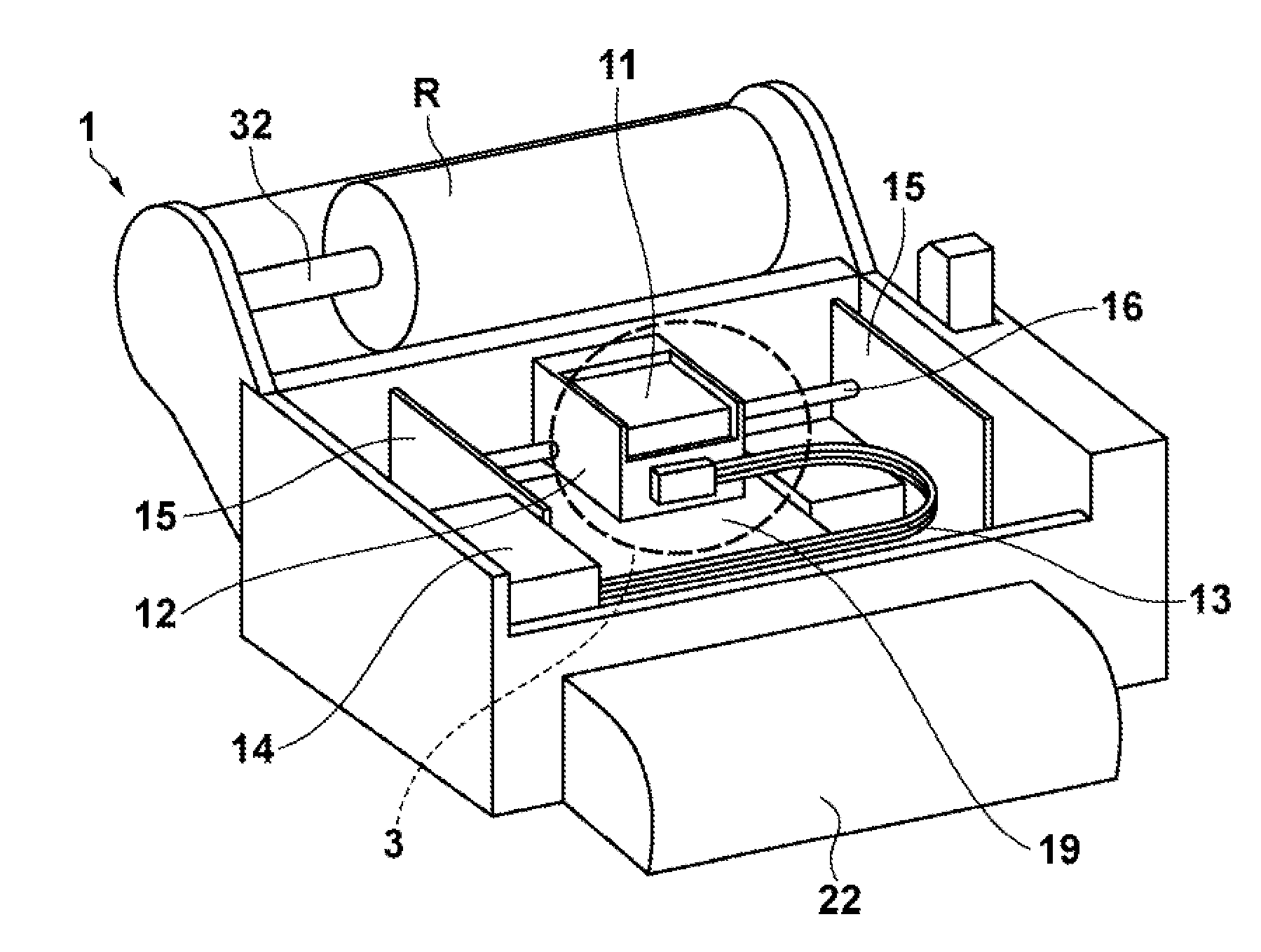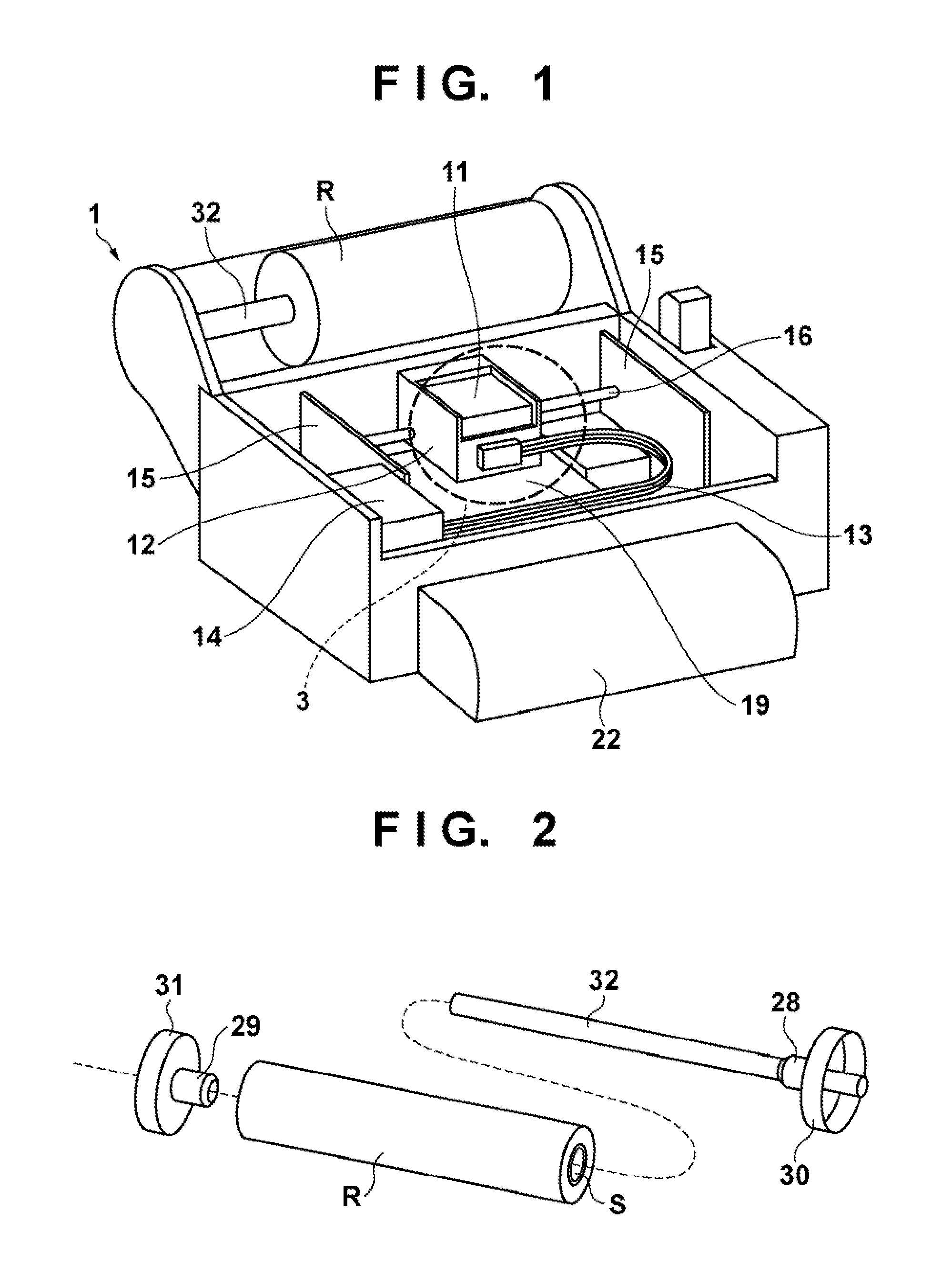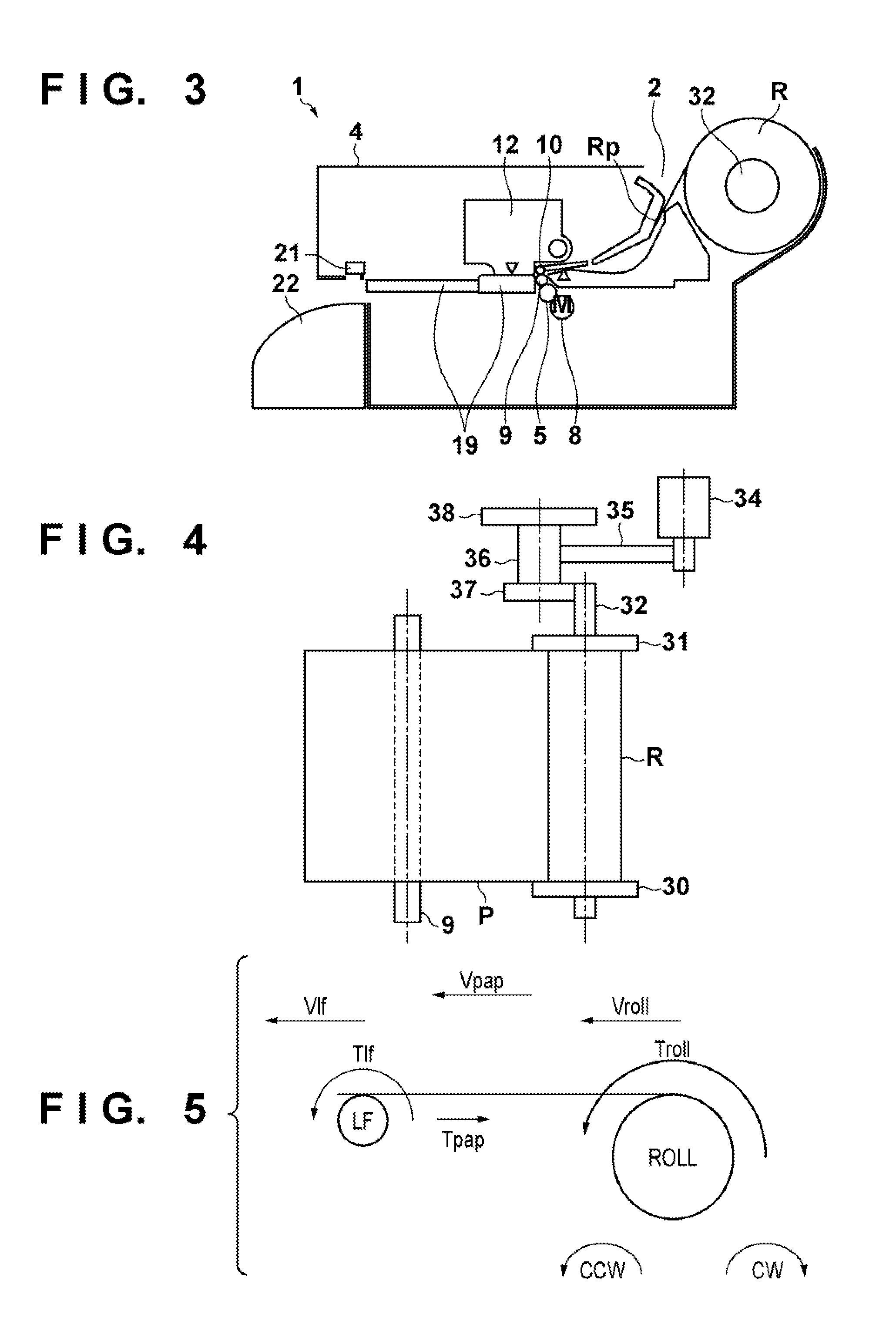Printing apparatus, conveyance apparatus, and conveyance control method
a technology of printing apparatus and conveyancing apparatus, which is applied in the direction of printing and other printing apparatus, can solve the problems of large force required for pulling out the sheet portion, affecting the accuracy of the conveyancing, and the sheet may be torn, so as to achieve fine control, prevent skewed conveyancing, and improve the accuracy of the roll paper conveyancing
- Summary
- Abstract
- Description
- Claims
- Application Information
AI Technical Summary
Benefits of technology
Problems solved by technology
Method used
Image
Examples
first embodiment
[0075]Ideal Conditions of Roll Paper Conveyance
[0076]FIGS. 7A to 7D are timing charts for explaining the set value of a torque Troll to implement an ideal state as a target as compared to FIGS. 6A to 6D. In this case, the roll paper feeder includes no torque limiter. The operation of the LF roller is the same as that described with reference to FIGS. 6A to 6D, and a description thereof will be omitted.
[0077]Idealistic drive control is to generate a load for a short period (predetermined period) from the rotation start timing of an LF roller 9 (feeder load generation section) and make the load always exhibit a value “0” during the subsequent conveyance operation (feeder load zero section). This aims at removing the skewed component of roll paper by generating the load in a short time and then conveying the paper through the subsequent section without load, thereby minimizing the deterioration of the conveyance accuracy. A torque Tpap shown in FIG. 7D reflects this state. Referring to...
second embodiment
[0137]An embodiment will be described in which a back tension to be applied to a pulled out portion P of roll paper is controlled. Note that a description of the same control and constituent elements as those described in the first embodiment will be omitted, and only control unique to this embodiment will be explained.
[0138]FIG. 11 is a perspective view showing the schematic arrangement of an inkjet printing apparatus (to be referred to as a printing apparatus hereinafter) including a feed mechanism of roll paper, which performs back tension control.
[0139]The arrangement shown in FIG. 11 is the same as that shown in FIG. 1 except a sheet sensor 17 provided on a side surface of a carriage 12. The sheet sensor 17 can detect the presence / absence of a sheet and an edge of a sheet. The sheet sensor 17 can also detect the width of a sheet by reciprocally operating the carriage 12. The sheet sensor 17 can also detect the skewed amount of a sheet by conveying the sheet by a predetermined a...
third embodiment
[0194]FIG. 19 is a block diagram showing a control arrangement according to still another embodiment in the feed mechanism of the printing apparatus shown in FIG. 11. Note that referring to FIG. 19, the same reference numerals as in FIG. 8 or 14 denote the same constituent elements already described there, and a description thereof will be omitted. FIG. 19 is different from FIG. 14 in the conveyance motor driving method in the first control unit. In this embodiment, a conveyance motor 8 is driven by open loop control, like a pulse motor or a stepping motor. In such an arrangement, the first control unit determines the target value of the current to drive the conveyance motor and outputs a pulse table value PTABLE corresponding to the target value to a motor driver 55. The conveyance motor 8 is driven in accordance with the pulse table value PTABLE that is, by the current having the target value determined by the first control unit. An LF control unit 43 outputs the target value of t...
PUM
 Login to View More
Login to View More Abstract
Description
Claims
Application Information
 Login to View More
Login to View More - R&D
- Intellectual Property
- Life Sciences
- Materials
- Tech Scout
- Unparalleled Data Quality
- Higher Quality Content
- 60% Fewer Hallucinations
Browse by: Latest US Patents, China's latest patents, Technical Efficacy Thesaurus, Application Domain, Technology Topic, Popular Technical Reports.
© 2025 PatSnap. All rights reserved.Legal|Privacy policy|Modern Slavery Act Transparency Statement|Sitemap|About US| Contact US: help@patsnap.com



